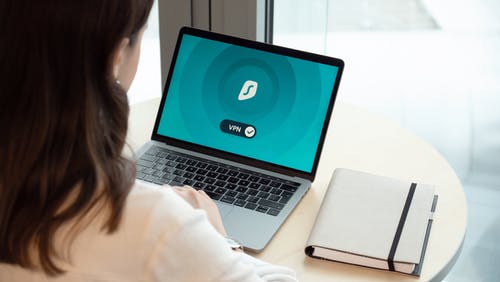
Although 2020 has ended, the changes it initiated in the workforce have not. Employees continue to work remotely since Covid transmission in the office is still a danger, and a recent Gartner survey reported that 80% of company leaders will allow workers to telecommute even after the pandemic is over. Many remote employees have made necessary changes to accommodate their home office needs but have overlooked the changes needed to protect sensitive data being transmitted into and out of their homes. If you’re one of the millions still working from home, HTC has some cyber safety tips to protect you and your business from viruses, malware, and cybercrimes.
HTC SecureIT Web Security provides cyber safety when working from home
Don’t Use Personal Devices for Work, or Vice-Versa
You should never use an employer-provided laptop for leisure activities, or perform work tasks on your family’s computer. Either of these could put work-related data at risk. Instead, use work devices only for your job and other devices for homework, gaming, searching and streaming.
Create Stronger Passwords
All of your devices as well as your WiFi network should be password-protected, and your passwords should be impossible to figure out. The strongest passwords have no personal information such as birthdates or pet names, and they should be comprised of uppercase and lowercase letters as well as numbers and special characters.
Add an Extra Layer of Security with Multi-Factor Authentication
Multi-factor authentication requires at least two methods of identity verification before allowing a user to log into a device, account or network. These methods can include passwords, security tokens or other methods, which together ensure you are the only one who can get into the system. If you don’t already have multi-factor authentication on your device, talk to your IT department.
Make New Software Updates Promptly
Software updates fix security flaws – particularly updates for anti-virus and malware programs. So any time you see pop-up suggestions asking if you want to install the newest software updates, click yes (as long as it’s a software you’re familiar with).
Keep the Virtual Private Network On
A Virtual Private Network, or VPN, uses data encryption to secure information that’s transmitted between employer and employee. To keep cybercriminals from being able to intercept sensitive data, you should never turn the VPN off, and do not use public WiFi unless signed into your VPN.
Be Careful When Opening Emails
These days, it’s not uncommon to receive emails that appear to be from trusted co-workers or your HR department, but that are actually phishing scams from cybercriminals. The email will have a subject line that aims to grab an employees’ curiosity, and then when the employee clicks on an attachment or link, they steal your information or install a virus. If you’re not positive an email is from someone you know, don’t open it.
Not Sure How Secure Your Home Office Is? Ask HTC.
HTC can help protect your privacy even further with our SecureIT Web Security software. It offers world-class security, personal data backup, anti-virus, and more. Call us today to discuss all the measures we can take to keep your data secure, because we’d love to do all we can to help you do your job better while working from home.
Harrisonville Telephone Company is a provider of reliable, cost-effective Internet (for streaming, gaming, surfing, viewing, listening, downloading, and more), television (hundreds of channels, free HD, VOD access and more), and phone (unlimited local and long distance, voicemail, caller ID, etc.). Want to learn more about our great home or business bundles? Visit our website, call us at 939-6112, or fill out our Contact Us page. We look forward to hearing from you.

